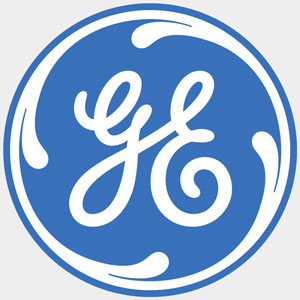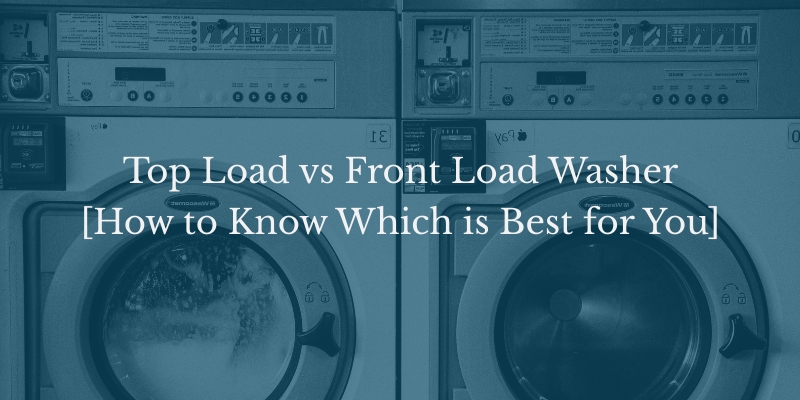Top Load vs Front Load Washer [How to Know Which is Best for You]
Approximately 85 percent of homes in the U.S. have a washing machine. If your home falls into this category, are you happy with your current setup, or are you considering investing in a new washer?
When it comes to choosing a washing machine, there are tons of options out there. Two of the most popular styles, though, are the top-loading washer and the front-loading washer.
Each of these machines comes with its own benefits and drawbacks. Read on to learn everything you need to know about a top load vs front load washer so you can pick the best one for your home.
Top Load vs Front Load Washer: Key Differences
At first glance, the most noteworthy differences between top and front load washers have to do with the location of the door. Top load washers open from the top, while front load washers have a reversible door on the front that swings open. Front load washers tend to be a bit smaller than top load washers as well, and they can be stacked to fit into small spaces with more ease.
The location of the controls varies depending on the type of washer, too. Top load washers tend to have their controls on the top of the unit and toward the back. With front load washers, the controls are usually located on the front of the unit.
Top load washers and front load washers also differ in terms of their capacities and water levels. Front load washers tend to hold more laundry per washing since they don’t have an agitator in the middle taking up valuable space.
Benefits of a Top Load Washer
There are lots of reasons why someone might want to use a top load washer over a front load washer. The following are some of the greatest benefits they have to offer:
Lower Price
The latest reports indicate that washing machine prices are rising throughout the U.S. Many people are looking to save money on washing machines, and purchasing a top load washer instead of a front load washer is a good way to do this.
Because they’ve been around longer, top-loading washers tend to be more affordable than front-loading washers. This is especially true if you’re looking at a standard model that doesn’t come with a lot of special features or a high-efficiency label.
Easier to Add Laundry
We’ve all been there. We get the laundry going and are ready to move on with our day, only to realize at the last second that we’ve forgotten to toss in one last item.
With a top load washer, it’s easy to do this. You just lift up the lid and throw the item (or items) in. With a front load washer, if you tried to do this, you’d end up with a flooded laundry room.
Longer Lifespan
In general, top load washers tend to have longer lifespans than front load washers. Many top-loading washers, if they’re well-maintained, can last for up to 14 years before they need to be replaced. The average lifespan for a front load washer is just about 11 years.
Lower Repair Costs
Top load washers often are more affordable to repair, too. They don’t come with as many special features and washing options, both of which can make repairs more difficult and time-consuming.
Benefits of a Front Load Washer
At the same time, front load washers have their own reasons for being very popular options. Keep these benefits of front load washers in mind before you make a final decision:
Less Wear and Tear
Top load washers often have an agitator in the middle which keeps your clothes moving through the wash cycle. This agitator can cause clothes to wear out faster, especially when you’re washing very soft or delicate materials. Front load washers, on the other hand, are gentler and less likely to cause excessive wear and tear.
Less Water Usage
Front load washers, in most cases, use less water than top load washers, including high-efficiency models. If you’re worried about your water consumption and want to reduce your usage, a front load washer is a great option.
More Energy-Efficient
In addition to using less water, front load washers use less energy overall. This is because it takes less energy to heat the water during the wash cycle. If you purchase a washer that features an Energy Star label, you can be especially sure that you’re using the least amount of energy possible and reducing your overall carbon footprint.
Takes Up Less Space
Finally, front load washers take up less space. You can stack them with your dryer to fit them into small areas with ease, giving you more opportunities to move about while in your laundry room.
Things to Consider When Choosing a Washer
If you’re having a hard time choosing between a front load and top load washer, you may need to ask yourself some additional questions. The following are all good things to consider when trying to choose the best washer for your home:
- How many wash settings does it have?
- Is it large enough to meet my laundry needs?
- Will it fit into my laundry room with ease?
- Is there a dryer that matches it?
- What kind of material is made of? Steel? Enamel? Plastic?
- Does it have a pre-soak cycle?
- Does it fit my budget?
The answers to all of these questions can help you gauge whether a certain type of washer (whether it’s front or top loading) is right for you. It’s also a good idea to look up reviews and find out how often people have to have their washer repaired before you make a final selection.
Top Load vs Front Load Washer: Which is Right for You?
Now that you know more about each option, where do you stand on the top load vs front load washer debate? Whichever team you’re on, be sure to keep the information listed above in mind. It’ll help you choose the perfect washer for your home.
Remember to have your washer serviced on a regular basis, too. This will help to cut down on the need for expensive repairs and ensure that your washer is working in the most optimal way.
If you’re located in or around the Denver or Hunstville areas and need washer servicing or repairs, we can help at Lee’s Appliance Repair. Contact us today to learn more about our services, get an estimate, or to schedule an appointment.



